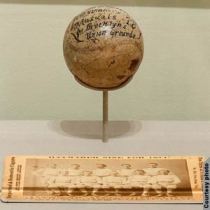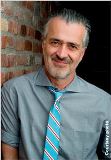President Obama is outraged by North Korea’s attack on South Korea. Despite their difficult year, Haitians are preparing to vote in elections this coming weekend. At the U.N. climate change conference COP-16, there is potential for progress. In Pakistan, U.S. flood relief efforts reach a new milestone. Defense Secretary Robert Gates endorses a new plan to create crisis cells. In Indonesia, there’s new research on bird flu. A professor in New York is behind the Encyclopaedia Iranica. And finally, Ela Bhatt receives the first Global Fairness Award.
 U.S. Condemns “Outrageous” N. Korean Attack
U.S. Condemns “Outrageous” N. Korean Attack
North Korea’s artillery attack upon a South Korean island is an outrageous act, and the United States is working with other countries in the region to develop a “measured and unified response,” U.S. officials say. Deputy White House press secretary Bill Burton says Obama “is outraged by these actions.” At right, South Koreans read special news editions on the attack.
Haitians Encouraged to Vote
The United States is urging Haitians to exercise their right to vote in Haiti’s upcoming presidential and legislative elections, says U.S. Ambassador to Haiti Kenneth Merten. Haiti’s new leaders will face the challenge of rebuilding the nation of 10 million citizens.
COP-16’s Potential for Progress
Parties to the U.N. climate change conference that begins next week in Cancún should focus on attainable goals that could set the groundwork for a future climate treaty, says U.S. Special Envoy for Climate Change Todd Stern. “Rather than insisting on a legal treaty before anything happens, we should move down the pragmatic path of concrete operational decisions,” Stern says.
A Milestone in Pakistan Relief
U.S. flood relief efforts in Pakistan reached a new milestone on November 21, with more than 25 million pounds of relief supplies delivered in Pakistan since U.S. military relief flight operations began August 5, says U.S. Embassy Islamabad.
A Plan for Disaster Response
The United States “wholeheartedly endorses” a plan to create crisis cells that would be on standby to respond in the event of natural disasters across the Western Hemisphere, such as Haiti’s earthquake in January, Defense Secretary Robert Gates says.
Fighting Bird Flu
The new Indonesian National Laboratory for Infectious Diseases Research in is seeking to better understand and control the avian influenza (bird flu) virus and other dangerous diseases facing Indonesia. Statistics from the World Health Organization show Indonesia has had the largest number of bird flu cases and related deaths worldwide.
The Encyclopaedia Iranica
Ehsan Yarshater, a professor emeritus at Columbia University in New York, came up with the idea for the Encyclopaedia Iranica as a student in the 1930s. In the decades since, Yarshater has made his idea for an English-language encyclopedia a hardbound and online reality as the premier compendium of scholarship on the Iranian world.
 Clinton Honors Ela Bhatt
Clinton Honors Ela Bhatt
In a ceremony at the Kennedy Center for the Arts, Secretary of State Hillary Rodham Clinton conferred the first Global Fairness Award on Ela Bhatt. Bhatt, right, is the founder of the Self-Employed Women’s Association in India, a combination trade union and social movement which now has more than one million members.



 Protecting Americans Overseas
Protecting Americans Overseas
 G20 Agrees on Regulations, Trade
G20 Agrees on Regulations, Trade
 Seeking Justice in Cambodia
Seeking Justice in Cambodia


